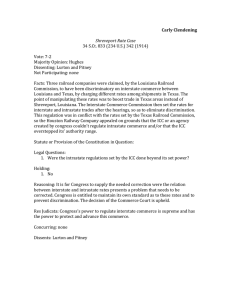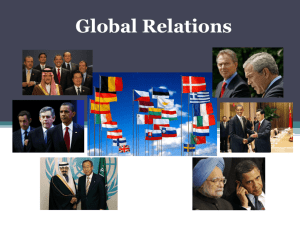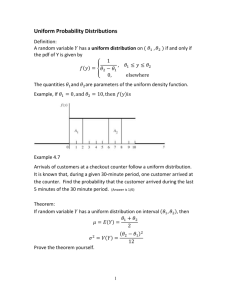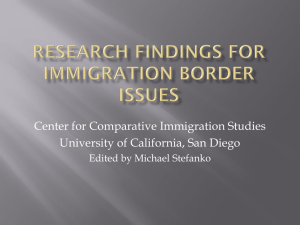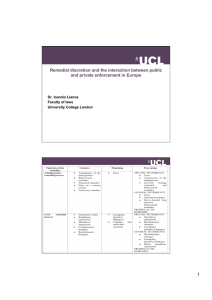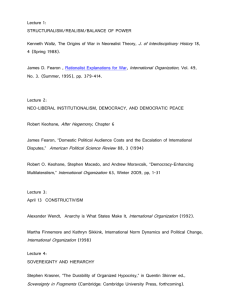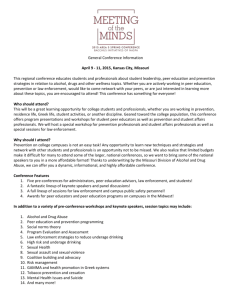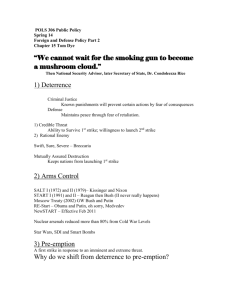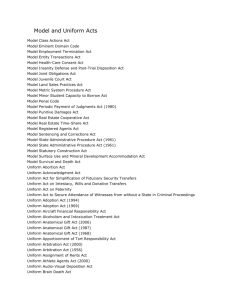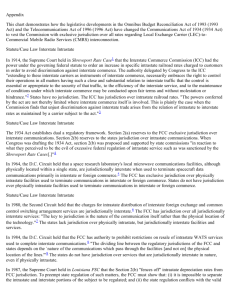These are examples of the types of questions you are going to have
advertisement
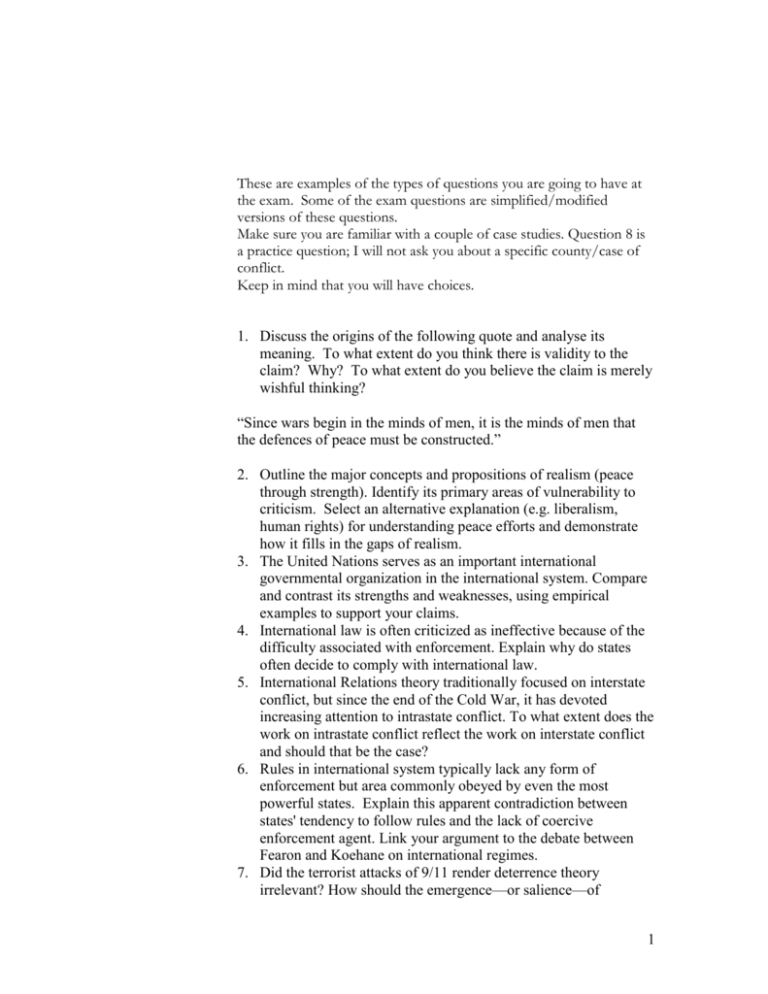
These are examples of the types of questions you are going to have at the exam. Some of the exam questions are simplified/modified versions of these questions. Make sure you are familiar with a couple of case studies. Question 8 is a practice question; I will not ask you about a specific county/case of conflict. Keep in mind that you will have choices. 1. Discuss the origins of the following quote and analyse its meaning. To what extent do you think there is validity to the claim? Why? To what extent do you believe the claim is merely wishful thinking? “Since wars begin in the minds of men, it is the minds of men that the defences of peace must be constructed.” 2. Outline the major concepts and propositions of realism (peace through strength). Identify its primary areas of vulnerability to criticism. Select an alternative explanation (e.g. liberalism, human rights) for understanding peace efforts and demonstrate how it fills in the gaps of realism. 3. The United Nations serves as an important international governmental organization in the international system. Compare and contrast its strengths and weaknesses, using empirical examples to support your claims. 4. International law is often criticized as ineffective because of the difficulty associated with enforcement. Explain why do states often decide to comply with international law. 5. International Relations theory traditionally focused on interstate conflict, but since the end of the Cold War, it has devoted increasing attention to intrastate conflict. To what extent does the work on intrastate conflict reflect the work on interstate conflict and should that be the case? 6. Rules in international system typically lack any form of enforcement but area commonly obeyed by even the most powerful states. Explain this apparent contradiction between states' tendency to follow rules and the lack of coercive enforcement agent. Link your argument to the debate between Fearon and Koehane on international regimes. 7. Did the terrorist attacks of 9/11 render deterrence theory irrelevant? How should the emergence—or salience—of 1 terrorism influence our understanding of deterrence theory? Does Fearon’s argument on commitment apply in the case of transnational terrorism? 8. Take the case of Northern Ireland, analyse it using theories on intrastate conflict. Which theory does provide the most comprehensive explanation of the Irish conflict? Then do the same by looking into methods of conflict management. 9. Apply bargaining theory in an ethnic conflict (e.g. Bosnia, Kosovo, Northern Ireland, Sri Lanka). Some people have argued that the cause of ethnic conflicts is commitment. Discuss this point and provide a possible scenario under which the commitment problem can be resolved. 2
